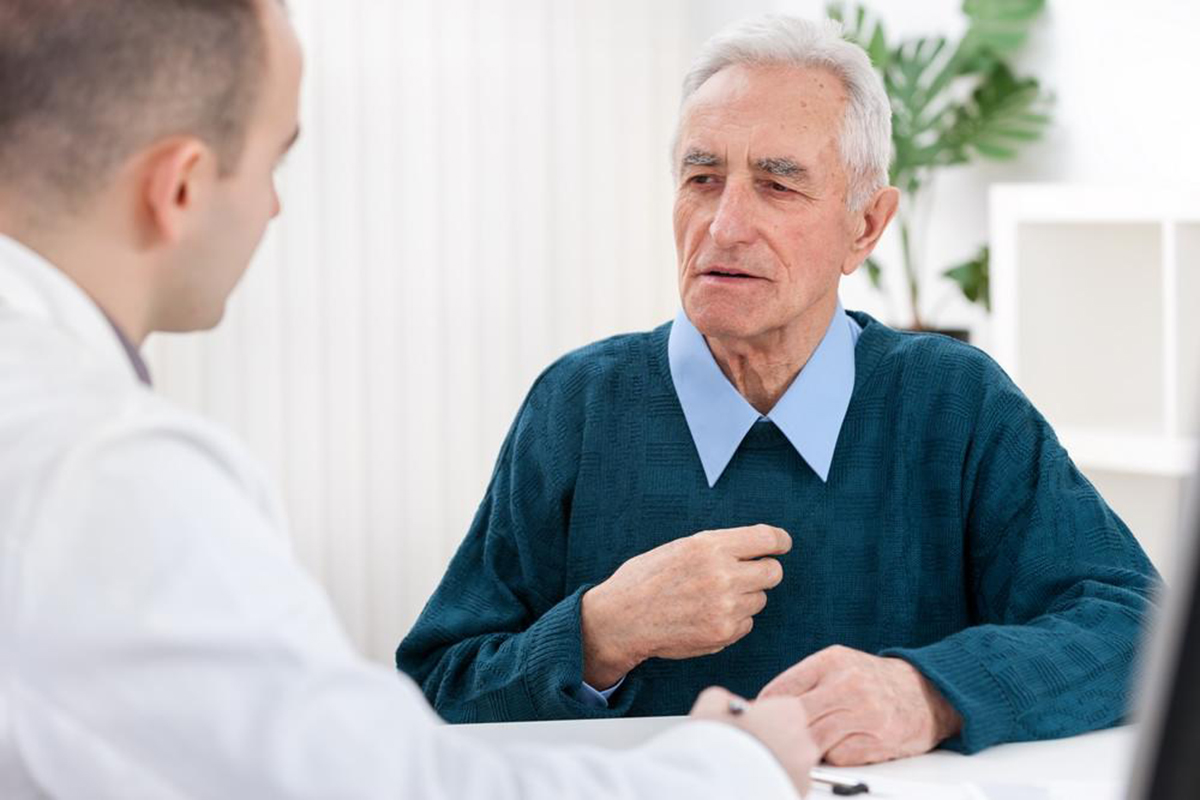Gastroenterologists are physicians who specialise in diagnosing and managing diseases and conditions that affect the organs of the gastrointestinal tract. These organs and tissues include the oesophagus, stomach, small intestine, pancreas, gallbladder and bile-ducts, liver, colon, rectum and anus.
Training
A gastroenterologist can spend up to 15 years to become a specialist in this chosen discipline. The training consists of 5-6 years of medical school to obtain their undergraduate degree and qualify as medical doctors, 1-2 years of internship training to be exposed to the different medical and surgical disciplines, 4 years residency in internal medicine and 3 years fellowship training in gastroenterology.

A gastroenterologist wanting to specialise further in hepatology (dealing with the liver, gallbladder and bile-ducts) needs to complete another 1 year of fellowship training in this discipline.
Conditions that a Gastroenterologist manages
The following are examples of the medical conditions that a gastroenterologist diagnoses and manages.
Oesophagus
- Gastro-oesophageal reflux (GORD/GERD)
- Barrett's oesophagitis secondary to GORD.
- Trauma due to the ingestion of corrosive substances.
- Oesophagitis.
- Strictures.
- Achalasia and dysmotility disorders.
- Varices secondary to portal hypertension.
- Mallory-Weiss tears.
Stomach
- Gastritis
- Gastroenteritis.
- Gastric ulcer.
- Peptic ulcer.
- Pyloric stenosis.
- Gastric cancer.
- Helicobacter pylori infection.
- Zollinger-Ellison syndrome.
Pancreas
- Acute pancreatitis mainly due to gallstones that have impacted in the pancreatic part of the biliary tree or due to acute or chronic alcohol use.
- Chronic pancreatitis.
- Pancreatic cancer which is strongly linked to alcohol use.
- Pancreatic pseudocysts.
- Pancreatic fistulas.
- Exocrine pancreatic insufficiency.
Liver
- Acute or chronic hepatitis which is inflammation of liver tissue. Causes include viral infections (hepatitis A,B or C).
- Non-alcoholic steatohepatitis (NASH) which occurs in individuals who consume little or no alcohol.
- Fatty liver disease due to acute alcohol use.
- Alcoholic liver disease and alcoholic hepatitis due to chronic alcohol use.
- Liver cirrhosis due to chronic hepatic fibrosis.
- Acute liver failure that can result in hepatic encephalopathy and hepatorenal syndrome.
- Liver abscesses
- Chronic liver disease due to autoimmune illnesses such as Wilson's disease, haemochromatosis and autoimmune hepatitis.
Gallbladder and bile-ducts
- Gallstones.
- Cholecystolithiasis (gallstones impacted in the gallbladder).
- Choledocholithiasis (gallstones impacted in the common bile duct).
- Cholecystitis (inflammation of the gallbladder).
- Cholangitis (inflammation of the biliary ducts).
- Primary sclerosing cholangitis which may be associated with autoimmune diseases.
- Ascending cholangitis caused by bacterial infections.
- Cholangiocarcinoma (bile-duct cancer).
Small intestines
- Enteritis.
- Enterocolitis.
- Duodenal ulcers.
- Chronic diseases due to malabsorption of nutrients and minerals such as iron, calcium and magnesium.
- Mesenteric ischaemia.
- Ileus.
- Intussusception.
- Volvulus.
- Inflammatory bowel diseases such as Crohn's disease or ulcerative colitis.
- Intestinal pseudo-obstruction
- Necrotizing enterocolitis.
READ 8 Things They Won’t Tell You about Medical School
Large intestine
- Constipation.
- Irritable bowel syndrome (IBS).
- Diverticulitis.
- Colon cancer.
- Pseudomembranous colitis.
Rectum and anus
- Internal or external haemorrhoids.
- Thrombosed heamorrhoids.
- Pruritis ani.
- Vascular outpouchings of skin.
- Proctitis.
- Faecal incontinence and encopresis.
- Anal fissures.
- Anal fistula.
- Anal abscesses.
- Rectal cancer.
- Anal cancer.
The Daily Schedule Of A Gastroenterologist
A gastroenterologist will visit their hospital patients every day and the ICU patients may be seen 2-3 times a day depending on their health status. The patients will be managed until they have all their investigations completed, or have been treated optimally so that they can be discharged home.

These specialists may admit patients for further investigations such as gastroscopies (endoscopic examination of the oesophagus, stomach and part of the intestine) and colonoscopies (endoscopic examination of the rectum and colon) if they are experiencing symptoms such as vomiting blood or passing blood per rectum. These invasive procedures can be done as an outpatient basis if the patients are otherwise stable. Another invasive procedure which is performed by gastroenterologists includes an endoscopic retrograde cholangio-pancreatography (ERCP), which is an endoscopic exam that utilizes the gastroscope but has an extension that allows the specialist to examine the bile and pancreatic ducts.
Gastroenterologists are expected to provide on call services after hours and on weekend to consult with healthcare workers and casualty doctors to give an opinion or manage emergency patients. The specialist would provide on call services 2-3 times per week depending on how many physicians are available at the hospital they work at. The emergency cases that will be seen include acute abdomens due to cholecystitis or cholangitis, acute diverticulitis, acute inflammation of Crohn's disease and vomiting or passing of blood per rectum.
Monday
The gastroenterologist will attend to non-clinical aspects such as confirming or attending meetings with staff, hospital management and medical representatives. They will also deal with any office logistics at this time.
Once the administrative tasks have been dealt with, the specialist will start consulting with patients. These patients will be managed conservatively with medication, referred to allied heath workers such as physiotherapists and dieticians, sent for further investigations such as X-rays and CT scans of the abdomen or be admitted to the hospital for further in-patient procedures or tests and further management.
Tuesday
The gastroenterologist may spend the day performing gastroscopies, colonoscopies and ERCPs on out- and in-patients. Once they have completed the procedures, they have to report on their findings and then follow up these results with their patients and then advise further management, or give feedback of the results to physicians who referred the patients for the procedures.
Wednesday
The specialist will continue to consult with and manage patients during the morning. The afternoon may be reserved for compiling reports of their findings on investigations such as X-ray and CT scan images, and then discussing the results with their patients and providing further treatment.
Gastroenterologists may also be involved with reporting on the findings visualized during the assessment of the images collected by a capsule endoscopy. This involves the patient swallowing a pill that contains cameras and its own light source that takes pictures of the gastrointestinal tract.
READ Rebounding From Medical School Rejection
Thursday
The gastroenterologist will consult with patients in the morning and will use the afternoon to complete forms for motivations to the medical insurance companies and filling out chronic prescriptions for patients. The specialist may also use the afternoon to do research for their own academic purposes, or offer training to under- and post-graduate doctors.
Friday
The specialist will consult with patients and manage them appropriately in the morning, and the afternoon will be used to finish up any unresolved administrative issues.
The specialist who will be on call for the weekend will be responsible for the medical care of their patients and those of their colleagues.
- en.wikipedia.org/wiki/Gastroenterology
- en.wikipedia.org/wiki/Gastrointestinal_disease#Pancreatic
- Photo courtesy of Shutterstock.com
- Photo courtesy of Shutterstock.com


Your thoughts on this